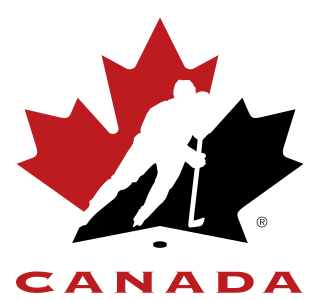
Hockey Canada is the national governing body of ice hockey and ice sledge hockey in Canada. It is a member of the International Ice Hockey Federation and controls the majority of organized ice hockey in Canada. There are some notable exceptions, such as the Canadian Hockey League, U Sports, and Canada's professional hockey clubs; the former two are partnered with Hockey Canada but are not member organizations. Hockey Canada is based in Calgary, with a secondary office in Ottawa and regional centres in Toronto, Winnipeg and Montreal.

Earl Phillip Dawson was a Canadian ice hockey administrator, politician and civil servant. He rose to prominence in Canadian hockey when he served as president of the Manitoba Amateur Hockey Association from 1958 to 1963. He established a council to reverse the decline of hockey in rural Manitoba and saw the association continually increase its registrations by spending more per player to develop minor ice hockey than other provinces in Canada. Dawson became chairman of the Canadian Amateur Hockey Association (CAHA) rules committee and organized the first nationwide clinic for referee instructors to standardize the interpretation of hockey rules. Dawson became vice-president of the CAHA in 1966 then served as its president from 1969 to 1971. The International Ice Hockey Federation had approved a limited use of professionals at the 1970 Ice Hockey World Championships, but later reversed the decision when the International Olympic Committee objected. Dawson and the CAHA perceived the situation to be a double standard since the Europeans were believed to be state-sponsored professionals labelled as amateurs, and withdrew the Canada men's national ice hockey team from international competitions until it was allowed to use its best players.

Hockey Québec is the governing body of all ice hockey in Quebec, Canada. Hockey Québec is a branch of Hockey Canada.

Donald Stewart Johnson was a Canadian sports executive. He was elected president of the Newfoundland Amateur Hockey Association (NAHA) in 1966, sought to expand minor ice hockey in Newfoundland and negotiated for the NAHA to become a member of the Canadian Amateur Hockey Association (CAHA). He was elected president of the CAHA in 1975, resolved internal disagreement over the jurisdiction of junior ice hockey, avoided the withdrawal of the Western Canada Hockey League and sought a new professional-amateur agreement with the National Hockey League and World Hockey Association. He was part of negotiations to end the Canada men's national ice hockey team hiatus from the Ice Hockey World Championships and the Olympic Games, in exchange for International Ice Hockey Federation approval of the 1976 Canada Cup. He established a long-term sponsorship to improve the National Coaching Certification Program, twice visited China with a Canadian amateur team for instructional tours and arranged an exchange for Chinese players and coaches to attend training camps in Canada. He was chairman of the 1978 World Junior Ice Hockey Championships as the CAHA past-president, and was posthumously credited by Hockey Canada for playing an important role in Canada's return to international competitions and improving Canada's hockey reputation.
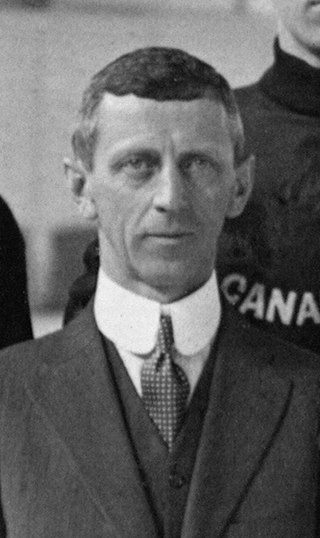
William Abraham Hewitt was a Canadian sports executive and journalist, also widely known as Billy Hewitt. He was secretary of the Ontario Hockey Association (OHA) from 1903 to 1966, and sports editor of the Toronto Daily Star from 1900 to 1931. He promoted the establishment of the Canadian Amateur Hockey Association (CAHA), then served as its secretary-treasurer from 1915 to 1919, registrar from 1921 to 1925, registrar-treasurer from 1925 to 1961, and a trustee of the Allan Cup and Memorial Cup. Hewitt standardized player registrations in Canada, was a committee member to discuss professional-amateur agreements with the National Hockey League, and negotiated working agreements with amateur hockey governing bodies in the United States. He oversaw referees within the OHA, and negotiated common rules of play for amateur and professional leagues as chairman of the CAHA rules committee. After retiring from journalism, he was the managing-director of Maple Leaf Gardens from 1931 to 1948, and chairman of the committee to select the inaugural members of the Hockey Hall of Fame in 1945.
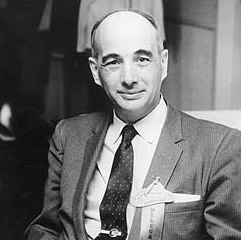
Robert Lebel or LeBel was a Canadian ice hockey administrator, who served as president of the Canadian Amateur Hockey Association (CAHA), and the International Ice Hockey Federation (IIHF). Lebel founded a senior ice hockey league during World War II, and then became president of the Quebec Amateur Hockey Association (QAHA). He was a mayor of Chambly, Quebec, before joining the CAHA as an executive member and later its president. He was president of the IIHF during the early Cold War era, the last Canadian to lead the federation. He later founded the Quebec Major Junior Hockey League for junior ice hockey players. He received the 125th Anniversary of the Confederation of Canada Medal, was inducted into the Hockey Hall of Fame, the IIHF Hall of Fame, three halls of fame in his native Quebec, and is the namesake of the Robert Lebel Trophy.

George Samuel Dudley was a Canadian ice hockey administrator. He joined the Ontario Hockey Association (OHA) executive in 1928, served as its president from 1934 to 1936, and as its treasurer from 1936 to 1960. He was elected to Canadian Amateur Hockey Association (CAHA) executive in 1936, served as its president from 1940 to 1942, as its secretary from 1945 to 1947, and as its secretary-manager from 1947 to 1960. He was secretary of the International Ice Hockey Association from 1945 to 1947, and was later vice-president of the International Ice Hockey Federation (IIHF) from 1957 to 1960. He was expected to become the next president of the IIHF before his death. He graduated from Osgoode Hall Law School in 1917 then practiced law for 43 years as the town solicitor for Midland, Ontario.

Gordon Wainwright Juckes was a Canadian ice hockey administrator. He served as the president and later the executive director of the Canadian Amateur Hockey Association (CAHA), and as a council member of the International Ice Hockey Federation. Juckes became involved in hockey as newspaper publisher and team president, then served as president of the Saskatchewan Amateur Hockey Association. During World War II he was a Major in the Royal Canadian Artillery, and was honoured with the Order of the British Empire.

Allan Wilfrid Pickard was a Canadian ice hockey administrator, who served as president of the Canadian Amateur Hockey Association (CAHA) from 1947 to 1950. When Canada opted out of the 1947 Ice Hockey World Championships and decided not to participate in the 1948 Winter Olympics, Pickard felt that Canada was obliged to send a team due to its place as a top hockey nation, and nominated the Ottawa RCAF Flyers who won the gold medal for Canada and lived up to the requirements of the Olympic Oath as amateurs. Despite disagreement with the International Olympic Committee, he sought for the International Ice Hockey Federation to adopt the CAHA definition of amateur in the face of increasing difficulty in selecting the Canada men's national ice hockey team.
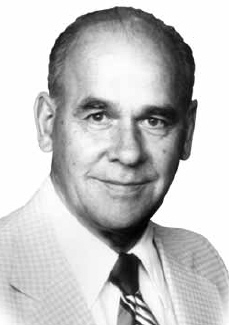
Frederick Page was a Canadian ice hockey administrator and ice hockey referee. He originated from Port Arthur, Ontario, where he played junior ice hockey, refereed locally and later at the Memorial Cup and Allan Cup competitions. He was a league executive in Fort William, then served as president of the Thunder Bay Amateur Hockey Association from 1958 to 1962. He was elected second vice president of the Canadian Amateur Hockey Association (CAHA) in 1962, and rose up the ranks to be its president from 1966 to 1968. Page wanted the CAHA to gain more control over its affairs, and become less dependent on the National Hockey League (NHL). Under his leadership, the NHL ended direct sponsorship of junior hockey teams. He was instrumental in negotiating the revised agreement for the NHL Amateur Draft in 1967, and later served as co-chairman of the resulting joint player development committee.

John Maxwell Roxburgh was a Canadian ice hockey administrator and politician. He organized minor ice hockey in his hometown of Simcoe, Ontario, co-founded the Ontario Juvenile Hockey Association in 1934, and the Ontario Minor Hockey Association in 1940. He served as president of the Ontario Hockey Association from 1950 to 1952, improved its finances to become profitable, and appointed Bill Hanley as a full-time manager to operate the association as a business. Roxburgh served as president of the Canadian Amateur Hockey Association from 1960 to 1962, arranged exhibition games between Canada and the Soviet Union amid an increased rivalry between the respective national teams, and pushed for the separation of politics and sport when the Cold War threatened to cancel the 1962 Ice Hockey World Championships. He was opposed to changes in the Olympic Oath and the international definition of amateurism, and later recommended the formation of a student-athlete team coached by Father David Bauer to become the Canada men's national ice hockey team.

Sylvester Patrick "Silver" Quilty was a Canadian football player, referee, coach and sport administrator. As a player, he won the Yates Cup in 1907 with the Ottawa Gee-Gees football team, and was credited as the first man to play the flying wing position. He also played with the Ottawa Rough Riders, and the McGill Redmen football team. After his playing career, he became a football referee and officiated the 10th Grey Cup, and also coached the Ottawa Rough Riders.
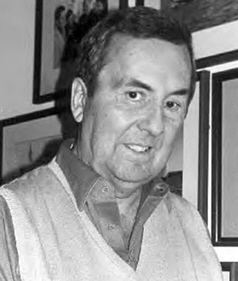
Gordon Ralph Renwick was a Canadian ice hockey administrator, who served as president of the Canadian Amateur Hockey Association (CAHA), vice-president of the International Ice Hockey Federation (IIHF), and was the team president of the Galt Hornets.
Bob Nadin is a Canadian retired ice hockey referee and administrator. He refereed at the 1972 Winter Olympics, and served as a referee supervisor for the International Ice Hockey Federation (IIHF), the National Hockey League, and the Canadian Amateur Hockey Association. He was involved with the Winter Olympic Games every Olympiad from 1972 until 2012, and was honoured by the International Olympic Committee with the Pierre de Coubertin medal. The IIHF honoured Nadin with the Paul Loicq Award, and inducted him into the IIHF Hall of Fame.

William John Devine was a Canadian ice hockey administrator and radio sports commentator. He worked for CJBQ radio in Belleville, Ontario for 40 years as the sports director. He was involved with the local sports scene, and was president of the Ontario Hockey Association from 1967 to 1969. He moved up to the national level in 1969 becoming vice-president of the Canadian Amateur Hockey Association (CAHA) in 1969, and later served as its president from 1973 to 1975.

Joseph Julius Kryczka was a Canadian ice hockey administrator, coach and referee, and had a legal career as a lawyer and judge, where he was commonly known as "Justice Joe". He graduated from the University of Alberta, and played hockey with the Golden Bears. He practiced law in Calgary for more than 20 years, beginning in 1959 as a lawyer, becoming a judge, and was eventually elevated to a justice on the Court of Queen's Bench of Alberta.

Lloyd Thompson Pollock was a Canadian ice hockey administrator and businessman. After running the Windsor City Hockey League, he assisted in the foundation of the Windsor Softball League, and later started a junior ice hockey league in Windsor, Ontario. He was a cofounder of the International Hockey League in 1945, and founder of the original Windsor Spitfires junior team in 1946. He served as president of the Ontario Hockey Association (OHA) from 1961 to 1963, welcomed the Montreal Junior Canadiens into the OHA when it was divided by the Metro Junior A League, and supported measures to preserve the Northern Ontario Hockey Association.
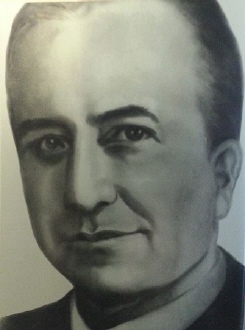
Cecil Charles Duncan was a Canadian ice hockey administrator. He served as president of the Canadian Amateur Hockey Association (CAHA) from 1936 to 1938 and led reforms towards semi-professionalism in ice hockey in Canada. He served as chairman of the CAHA committee which proposed a new definition of amateur to eliminate what it called "shamateurism", in the wake of Canada's struggles in ice hockey at the 1936 Winter Olympics. He negotiated a series of agreements to protect the CAHA's interests, and to develop relationships with all other areas of the world where hockey was played. The agreements allowed the CAHA to become independent of the Amateur Athletic Union of Canada which wanted to keep the old definition of pure amateurism. Duncan's reforms also returned the CAHA to affluence after four years of deficits during the Great Depression and increased player registrations in Canada.
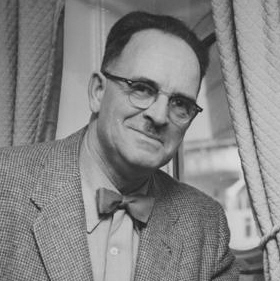
William Bryden George, also known as Baldy George, was a Canadian sports administrator and agriculturalist. He was president of the Canadian Amateur Hockey Association from 1952 to 1955, when Canada debated whether it would withdraw from the Ice Hockey World Championships and the Olympic Games. At issue was the perceived financial exploitation of the Canada men's national ice hockey team and abuse from European media on the Canadian style of physical play. He wanted a financial guarantee for the national team when it travelled since its participation increased attendance at events in Europe. Canada did not participate at the World Championships in 1953 and placed second in 1954, which led to heavy criticism by media in Canada for the failure to win. Although Canada won the 1955 Ice Hockey World Championships, George questioned future participation and was concerned that the game in Europe took on political and religious meanings in which Canada did not want to become involved.

Lionel Fleury was a Canadian ice hockey administrator who served as president of the Canadian Amateur Hockey Association from 1964 to 1966. Under his leadership, the Canada men's national ice hockey team transitioned from student athletes coached by Father David Bauer into a year-round national team program. Fleury welcomed the Newfoundland Amateur Hockey Association as a new branch member of the national association in 1966, and changed the format of the Memorial Cup playoffs in Eastern Canada from an elimination bracket into a round-robin format to reduce travel costs and address concerns of imbalanced competition. He sought an end to the National Hockey League system of sponsoring amateur teams by replacing it with a draft of players who had graduated from junior ice hockey, and negotiated for a new agreement that was realized after his term as president concluded.


















